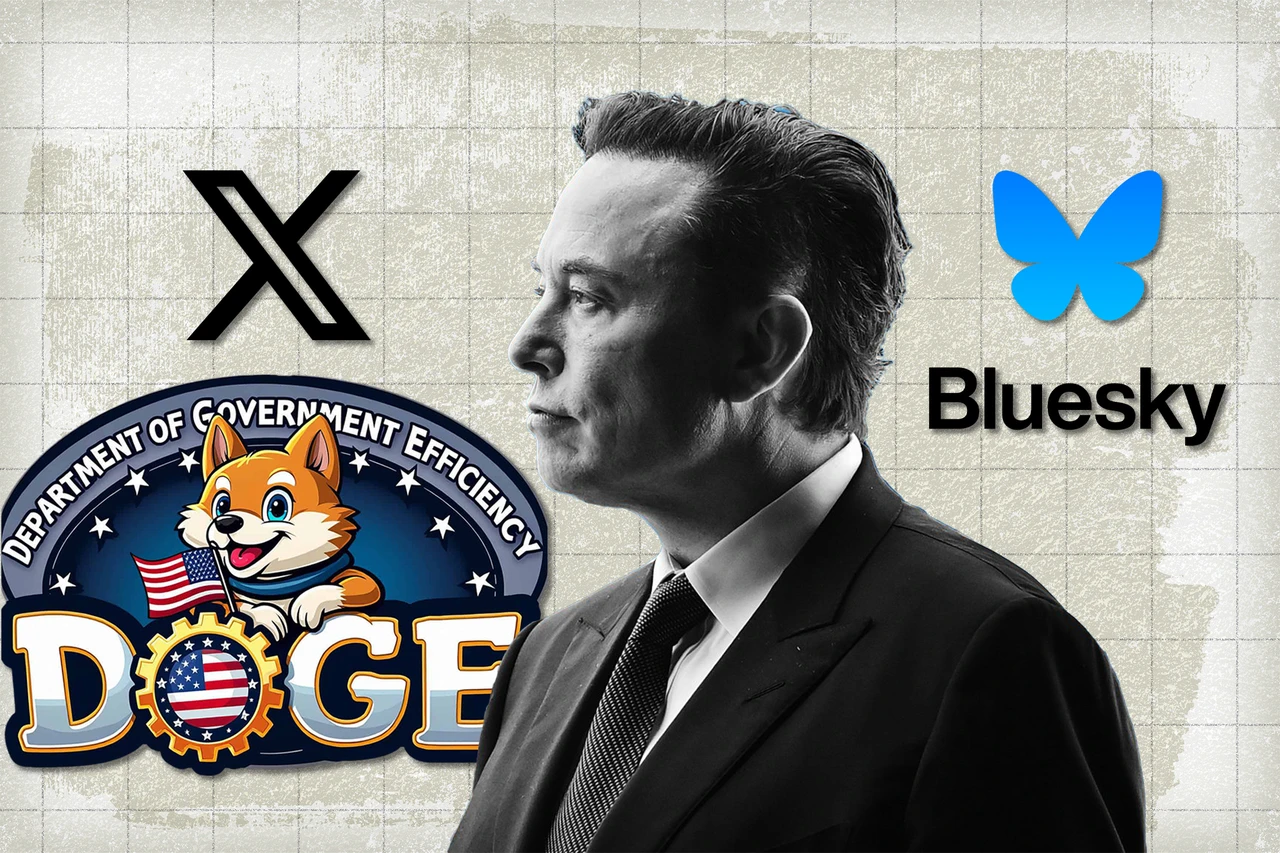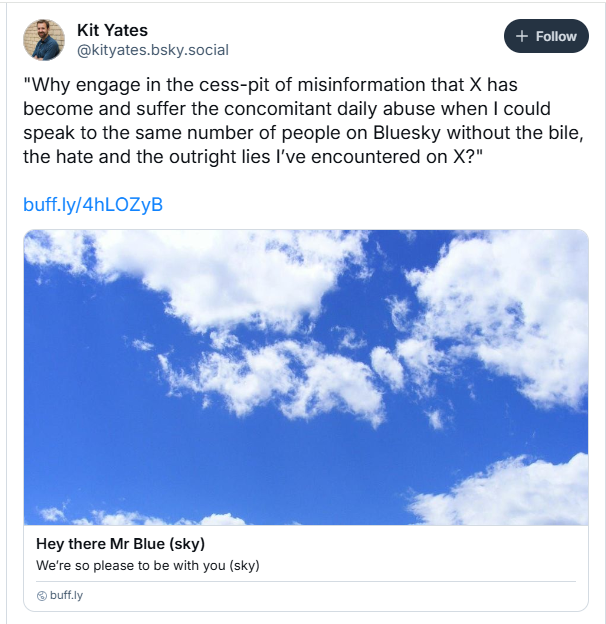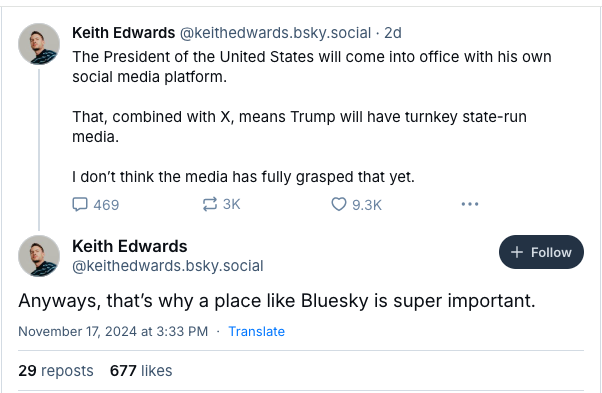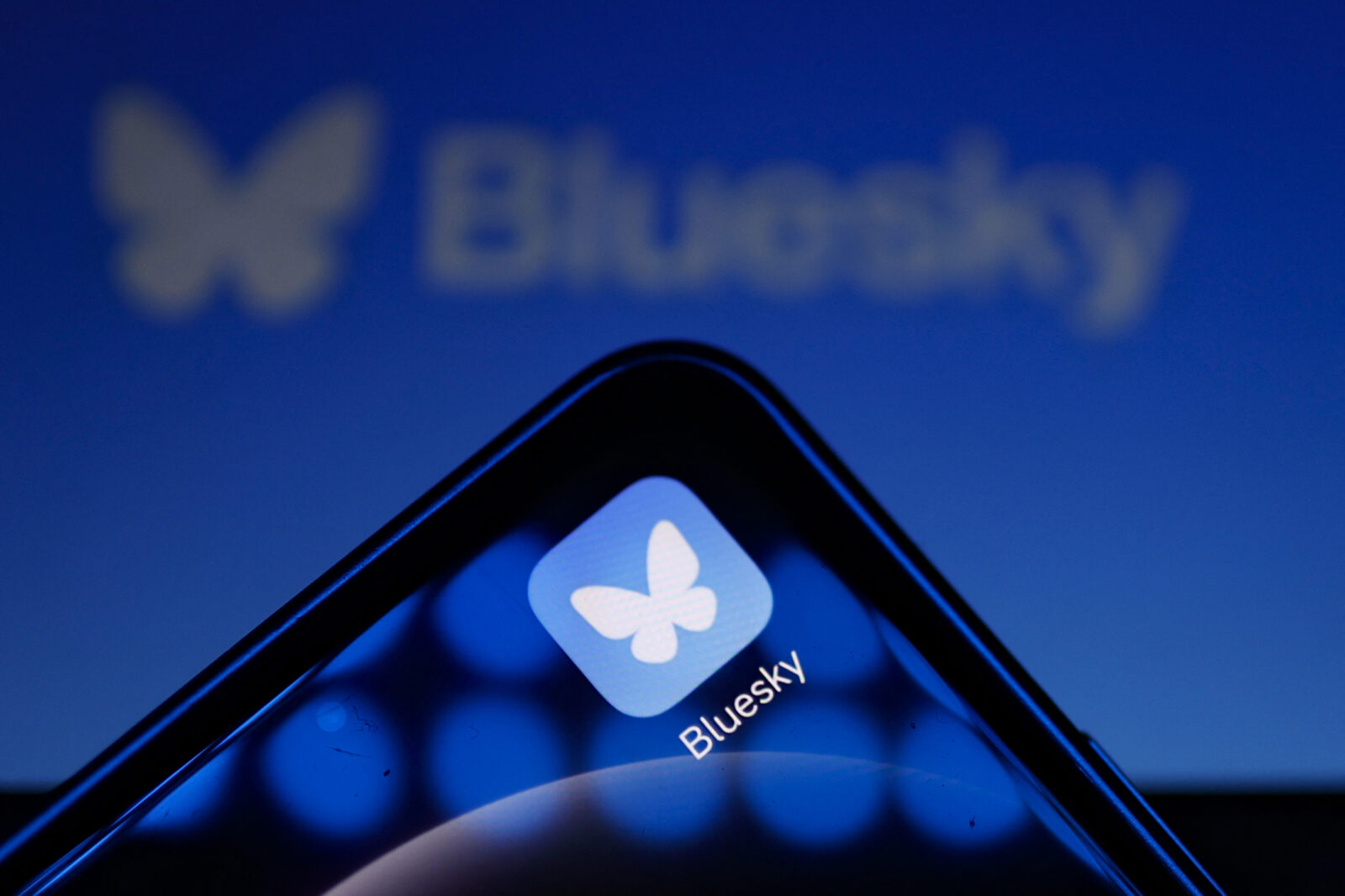Echo chambers to platform divides: Bluesky steps up
 Bluesky has seen a wave of early adopters, from Hollywood icons like Jamie Lee Curtis to politicians like Alexandria Ocasio-Cortez. Popular culture figures like comedian Ricky Gervais using their X account to promote their Bluesky profile. (Collage prepared by Mehmet Akbas)
Bluesky has seen a wave of early adopters, from Hollywood icons like Jamie Lee Curtis to politicians like Alexandria Ocasio-Cortez. Popular culture figures like comedian Ricky Gervais using their X account to promote their Bluesky profile. (Collage prepared by Mehmet Akbas)
Imagine standing in a room where every voice echoes back your own thoughts, each bounce reinforcing your beliefs until they feel so sure. This is not a physical place, but a virtual phenomenon—a digital echo chamber.
Once a defining criticism of platforms like X, formerly Twitter, this dynamic of reinforcing ideas within closed loops has shaped how we consume, believe and perceive information and truth online.
Algorithms, like invisible architects, built ideological walls around users, amplifying like-minded voices while muffling dissent. This dynamic, often blamed for exacerbating political polarization, now appears to be heading in a different direction.
Two studies published by Oxford University Press, though conducted at different times, shed an explanatory light on this possible shift. The first, points to Twitter’s direct influence in favor of Democrats during the 2016 elections. The recent one, published last month, suggests that Twitter might have played a role in swaying moderates toward voting for right-wing candidates around the world. Moreover, there’s evidence of a growing trend among Trump supporters to construct even more echo chambers for themselves.
With Trump’s return to the White House seen as a wake-up call, one of these ideological factions, once battling over who controls more rooms within a shared house, might move out and set up its own house in the next lot, with the fences between in the same neighborhood of social media.
Ian Bogost, director and professor of the Film and Media Studies program at Washington University and video game designer, believes that social media site Bluesky has not yet found any identity or purpose. These characteristics, developed over time, will be factors determining the platform’s appeal for certain chamber dwellers of the old house.
Genesis of Bluesky
Bluesky began in 2019 as an internal Twitter project under then-CEO Jack Dorsey. Dorsey envisioned a decentralized version of Twitter, free from the control of a single entity. Although he left the Bluesky board in May 2024 and subsequently deleted his account, the running CEO Jay Graber wants to generate hype around the platform, positioning it as an alternative to Elon Musk’s X in response to growing demand.
Describing itself as “social media as it should be”, the platform has indeed an element of real innovation that lies in its decentralized structure, which allows users to host their data on external servers instead of company-owned servers.
Most users still sign up with the default “.bsky.social” username, but the option to use custom handles linked to personal domains adds a unique layer of verification that is especially attractive to public figures and journalists. However, how much of the boost it receives is driven by its features is a topic for discussion.
Platform war brewing
It is reasonable to think that the platform’s surge in popularity, coinciding with the U.S. elections, aligns with growing dissatisfaction among X users, exacerbated by Musk’s personal agenda.
For some, Bluesky’s appeal lies in its resemblance to “old Twitter,” while others are drawn by its commitment to anti-toxicity features, such as detaching quote posts from original posts to prevent harassment. In contrast, X has relaxed its moderation policies, sparking concerns about user safety and discourse quality.
Following the election, Bluesky reported over a million new sign-ups in a single week, many citing a desire to escape X’s perceived toxicity, misinformation and extremism.

Why’s Bluesky grabbing more hype than, let’s say, Threads? Is it just the rapid growth, or is there more to the story? Last week, Instagram executive Adam Mosseri announced that Threads had attracted more than 15 million new users in the first half of November alone. That’s more than Bluesky’s total to date.
In other words, it’s not the numbers but the expectations driving the buzz around Bluesky—because, despite the user growth, no one is really talking about a Threads user boom. From this point of view, Bluesky is not only about user experience but also an agenda-based plan. Dem strategist Keith Edwards also highlights this.

Hype or Hope
Bluesky has seen a wave of early adopters, from Hollywood icons like Jamie Lee Curtis to politicians like Alexandria Ocasio-Cortez. Popular culture figures like comedian Ricky Gervais using their X account to promote their Bluesky profile.
Media organizations, such as The Guardian, have also shifted to Bluesky, citing X’s promotion of far-right conspiracy theories as a reason to cut ties. Mehdi Hasan, an influential journalist and CEO of Zeteo, hyped up his Bluesky account with a casual, “Come on in, the water’s nice”. The Onion’s CEO Ben Collins has special support for the platform as well.
High-profile celebrities and brands leaving X include NPR, Target and Shonda Rhimes, further signals dissatisfaction with Musk’s leadership.
Possibility of great echo exodus
Cenk Uygur, CEO of the news and commentary program “The Young Turks”, told Türkiye Today that when he kicked off his digital media career 26 years ago, he was betting on “the online” beating the TV, i.e., the mainstream media. Today, he says it’s clear his prediction has come true. As social media becomes an increasingly influential battleground for public opinion, Bluesky’s role could extend beyond simple networking to shaping political narratives.
If Bluesky can attract groups like journalists, advertisers, policymakers, and tech innovators—similar to how it’s drawing in Hollywood stars—it could create a transitional phase for itself. Right now, some users say Bluesky gives them a sense of digital nostalgia, reminding them of Twitter’s early days. However, nostalgia alone may not be enough to build lasting habits.

The real test lies not just in gaining users, but in keeping them engaged—and giving them a reason to stay. On a practical level, how Bluesky tackles spam and bots will be a major factor, especially as people are already googling how to switch to Bluesky without losing followers. Another big challenge is content moderation. As X faces backlash for their perceived failures in these areas, Bluesky will need to strike a delicate balance between user freedom and safety.
Indeed, all the mainstream media hyping it up and big-name celebs making the move is a solid start, but it looks like Bluesky still has a lot to prove if it wants people to truly break away from the main house.



